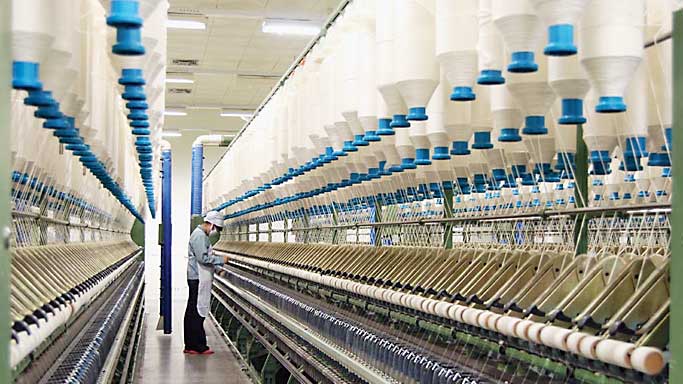Garment prices for items below Rs 1,000 may go up 7 per cent if the government proceeds to redress the inverted duty structure in that segment.
GST rates on yarn in the category of man-made fibre at 12 per cent are higher than garments at 5 per cent if the item costs below Rs 1,000, leading to refund of input tax credit generating a revenue outflow.
The GST Council has been deliberating on correcting the anomaly in textiles and had announced a three-month waiting period till December at its meeting in Lucknow last week before making the change. The changes will, therefore, take effect from January 2022.
“If they bring everything to 12 per cent to correct the inverted duty structure, the common man would have to pay 7 per cent extra. That will lead to a one-shot increase of 7 per cent in prices,” said Sanjay Jain, chairperson of the textile expert committee of the Indian Chamber of Commerce.
Jain said garment prices have already shot up 20 per cent in the last one year because of the increase in the prices of cotton and other fibres. A further increase in rates may severely impact small garment manufacturers.
“The solution is to maintain a status quo and let the current duty structure continue and to refund the excess taxes. The other solution is to reduce duty on man-made fibre yarn to 5 per cent. That is ideal but may lead to some revenue loss,” said Jain.
The industry is also concerned about a rise in unaccounted activities if tax rates go up.
“The moment the duty on garments below Rs 1,000 a piece increases from 5 per cent to 12 per cent, it would be detrimental to the industry. Unaccounted business will grow in a big way,” said Vinod Gupta, co-chairman, textiles sub-committee, Bharat Chamber of Commerce, and senior vice-president, West Bengal Hosiery Association.
Working capital
The industry also expects a rise in working capital requirement especially for the MSME textile manufacturers if the rates are increased.
“If the GST rate is increased to 12 per cent, cost for consumers will go up. If the rates increase, our working capital requirement will go up immediately,” said Ramesh Agarwal, past president, Merchants Chamber of Commerce and Industry.











